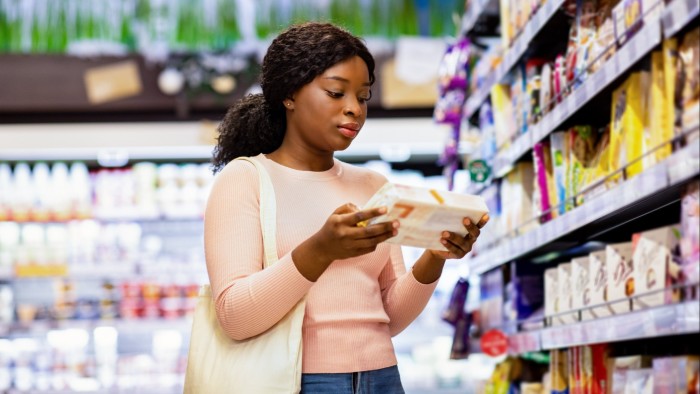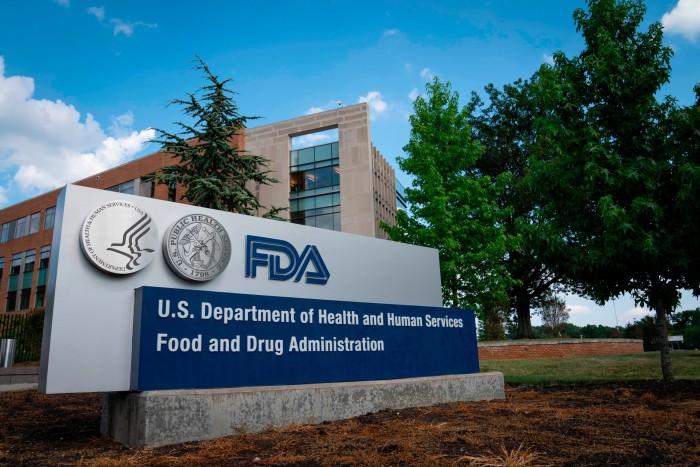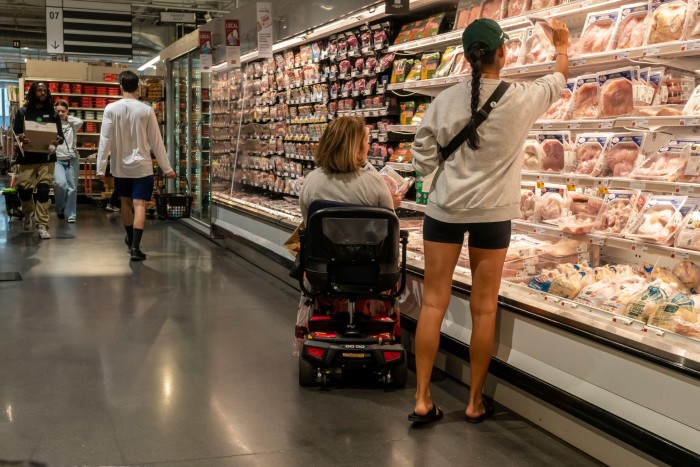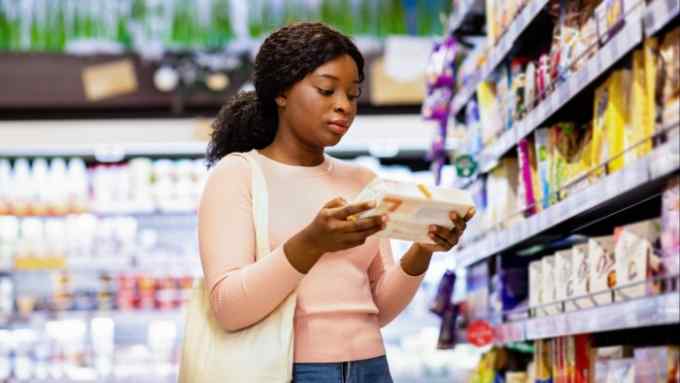Investors and regulators focus on food tracing

Roula Khalaf, Editor of the FT, selects her favourite stories in this weekly newsletter.
Do you really know what you’re eating? For consumers, it clearly matters: no one wants to eat something that will compromise their ethics, or their immune system. But, for businesses and investors, too, it is becoming increasingly important to know what is on the plate.
New regulations in Europe and the US, together with pressure from sustainability-minded investors, are prompting restaurant and grocery companies to look more closely at where their food originates. In response, an array of food-tracing start-ups is offering to help companies comply.
The EU’s rules — known as the Corporate Sustainability Reporting Directive — will land first. From January 2024, they will require big companies operating in the EU to disclose new information about environmental and social risks. This will include data to make it possible to trace products from raw materials to final form.
In the US, new Food and Drug Administration rules on food traceability will come into force in January 2026, including tighter record keeping protocols to enable produce such as fish, cheese, fruit and vegetables to be tracked. Ingredients in processed foods, from breakfast cereals to burgers, will not be included. These regulations date back to legislation signed by then President Barack Obama in 2011, but they were adopted only last year because of difficulties in agreeing on what was practicable.

All of the imminent rule changes coincide with a boom in sustainable investing that has continued despite last year’s downturn in financial markets. Global sustainable funds attracted $29bn in net inflows in the first quarter of 2023, according to data provider Morningstar. Fund assets continued their recovery to hit $2.74tn at the end of March, up from $2.55tn three months earlier.
And, for sustainable investors, the food industry remains a big source of concern. For example, As You Sow — a non-profit that is one of the most active environmental advocacy organisations in the US — has in recent years targeted the food companies Campbell Soup, JM Smucker and Kelloggs over the pesticides used in agricultural production.
In the past couple of years, it has filed shareholder petitions at Brinker International and Costco, asking the companies to phase out the use of antibiotics in meat. At Brinker, which owns the Chili’s restaurant chain, the resolution won backing from 21 per cent of shares voted. Other proposals were withdrawn after As You Sow reached agreements with the companies.
Such pressures are unlikely to abate, and a number of new businesses have emerged to help food companies track products along the whole supply chain.
“Traceability can help retailers and restaurants identify the environmental impact of their ingredients and make more sustainable choices,” says Stephen Bruce, chief executive of Trustwell, an Oregon-based business that offers food traceability for regulatory and sustainability compliance.
Armed with this information, he says, companies can prioritise sustainably sourced seafood, organic produce, or locally grown ingredients. “Traceability is critical to the calculation of certain sustainability metrics,” he argues.
In some non-food sectors, traceability appears to be further along. Planet Tracker, a London-based pressure group, noted in March that clothing giants such as H&M Group and Inditex have heads of traceability, while “many large food companies typically do not”. A lack of tracking oversight inside a company can create regulatory and reputational risks, Planet Tracker warned.
The non-profit’s report also pointed out that meat companies are conspicuously absent from the list of businesses with heads of traceability. However, as the petitions organised by As You Sow demonstrate, some investors are concerned about the overuse of antibiotics in the industry.
Until recently, meat producers assured consumers that beef was free from antibiotics “only by the honour system” and “not scientific verification”, says Bill Niman, rancher and co-founder of California-based FoodID. His company, whose purpose is “to provide transparency and accountability for brand label claims”, now tests batches of meat for the presence of antibiotics and other medications.

“There is a growing awareness that too many of these animal raising claims lack integrity,” Niman says — with the result that restaurants, shops, farmers and ranchers are insisting on testing to ensure that their label and menu claims are accurate. “We see testing and verification programmes becoming essential to help businesses manage their legal, brand and reputation risks,” he explains.
While some food companies object to the FDA’s tracing rules, others applaud the effort. In a 2021 letter to the agency, the Sustainable Food Policy Alliance — which comprises Danone North America, Mars, Nestlé USA and Unilever USA — said it was “imperative that the FDA’s regulatory structure maintains a proactive, preventative food safety approach”.
And pressure to tighten up on tracking is coming not only from regulators and investors. “Consumers are the biggest drivers of change,” says Fahim Al Qasimi, executive chair of Dubai-based tracing business Seafood Souq. Its service allows consumers to scan QR codes on seafood products to see where the contents came from.
Al Qasimi says the hospitality sector is starting to embrace food tracing, with four global hotel chains testing his company’s technology for procurement. “Integrating traceability at source, whether fisheries or aquaculture, will provide a cost-efficient tool to trace from sea to plate,” he says.
According to a Planet Tracker report issued in December, only eight of the 100 biggest seafood companies currently disclose information on precisely which species they are processing and dealing in — leaving investors unable to evaluate both financial and reputational risks. “Without [this information], investors are sailing in the dark,” it concluded.

Comments